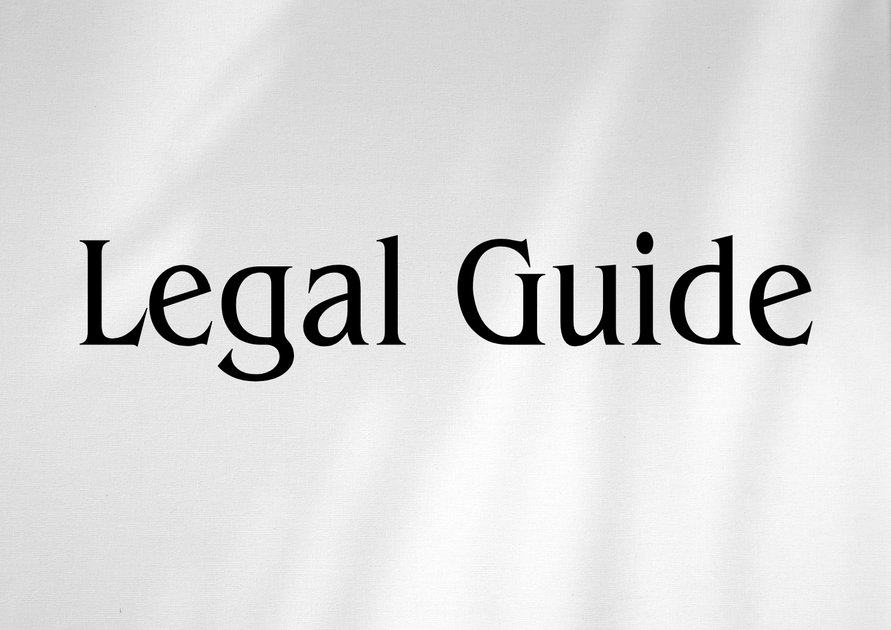Introduction
In today’s interlinked Gulf economies, effective corporate governance is at the heart of sustainable business success. Nowhere does this become more complex—or consequential—than with the issue of conflict of interest in corporate law. For UAE businesses, executives, and legal practitioners, staying abreast of Qatari conflict of interest regulations is increasingly critical. The rise in cross-border investments, joint ventures, and diversified board memberships within the region drives an urgent need for legal clarity and robust compliance frameworks.
This article delivers a consultancy-grade analysis of conflict of interest regulations underpinning Qatari company law, contrasting them with recent updates in UAE legal frameworks (including landmark federal decrees and Cabinet Resolutions effective from 2023 and anticipated in 2025). It explains what constitutes a conflict of interest, legal thresholds, fiduciary duties, and—most importantly—the implications of non-compliance. Readers will also discover practical strategies and clear case analyses relevant to the UAE’s evolving business landscape, all underscored by references to authoritative regional legal sources.
Table of Contents
- Overview of Conflict of Interest in Qatari Corporate Law
- Contrasting UAE Legal Developments: 2023-2025
- Key Legal Principles and Fiduciary Duties
- Real-World Examples and Case Studies
- Risks of Non-Compliance and Penalties
- Effective Conflict of Interest Compliance Strategies
- Strategic Outlook for UAE-Based Businesses
- Conclusion and Best Practices
Overview of Conflict of Interest in Qatari Corporate Law
Defining Conflict of Interest Under Qatari Law
In Qatari corporate governance, a conflict of interest arises whenever a board member, director, or senior executive stands to gain personally from any company transaction or decision, potentially undermining their duty to act in the best interest of the company and its stakeholders.
The primary legal sources governing these issues in Qatar are:
- Qatari Commercial Companies Law (Law No. 11 of 2015, as amended)
- Qatar Financial Markets Authority’s (QFMA) Corporate Governance Code
Key provisions establish:
- The duty to disclose any material personal interest in company contracts, assets, or competitive activities
- Strict approval processes for interested-party transactions
- Obligations to recuse oneself from voting or influencing decisions where conflicts arise
- Potential for shareholder challenge and legal redress if conflicts are not managed properly
Upper-Level Regional Context
For UAE investors and executives engaging across Qatar, these regulations align, in principle, with adopted international standards seen in the UAE, the UK, and beyond. However, subtle procedural differences in disclosure, shareholder notification, and the consequences of non-compliance can affect cross-border business strategies considerably.
Contrasting UAE Legal Developments: 2023-2025
Recent and Anticipated Changes to UAE Corporate Law
The UAE continues to overhaul its commercial legislation to enhance governance, investor protection, and global competitiveness. Major legal sources to reference include:
- Federal Decree-Law No. 32 of 2021 on Commercial Companies (as amended, effective 2023)
- Cabinet Resolution No. 3 of 2023 on Corporate Governance
- Anticipated updates under “UAE Law 2025” announced by the Ministry of Justice
| Topic | Qatar (Law No. 11/2015) | UAE (Decree-Law 32/2021 & anticipated 2025) |
|---|---|---|
| Disclosure Threshold | Any material/direct interest | Material interest or benefit, direct or indirect |
| Shareholder Notification | Must inform Board & record in Board minutes | Must notify Board & call for general meeting if conflict is significant |
| Approval Process | Board or General Assembly approval, depending on size | Board approval; shareholders if over 5% of company assets |
| Penalties | Nullification of contract; director liability; civil/criminal sanctions | Nullification, compensation, disqualification, fines (escalating from AED 100,000+) |
(Visual Suggestion: Infographic comparing disclosure and approval processes in Qatar and UAE side-by-side)
Why These Differences Matter
For UAE-based entities operating in Qatar or partnering with Qatari companies, subtle differences in disclosure and approval procedures may expose businesses to regulatory scrutiny or contractual disputes. Accurate mapping of legal requirements is essential for cross-jurisdictional compliance.
Key Legal Principles and Fiduciary Duties
Fiduciary Duties Under Qatari Corporate Law
Under Qatari Commercial Companies Law and QFMA’s Governance Code, board members and executives owe the company:
- Duty of Loyalty: To always act in the company’s best interests, placing those interests above personal gain.
- Duty of Disclosure: Mandated to fully disclose any financial or personal interest that could influence objectivity.
- Duty to Recuse: Required to avoid participation or influence in any board deliberations involving their interest.
- Transparency in Transactions: Registers of declared interests, maintained for regulatory or shareholder inspection.
| Fiduciary Obligation | Qatar | UAE |
|---|---|---|
| Loyalty | Explicit in law and QFMA Code | Explicit in Decree-Law 32/2021 |
| Disclosure | Immediate, written, entered in board proceedings | Written, entered and escalated if material |
| Recusal | Mandatory | Mandatory |
| Shareholder Redress | Petition to nullify transactions, claim damages | Direct litigation, nullification, regulatory fines |
Alignment with International Best Practices
Both Qatari and UAE legal frameworks increasingly reflect the Organisation for Economic Co-operation and Development (OECD) Principles of Corporate Governance. Notably, they enforce transparency and offer legal mechanisms for redress should conflicts impact corporate integrity or shareholder value.
Real-World Examples and Case Studies
Case Study 1: Undisclosed Director Interest
Scenario: A UAE-headquartered construction group, with subsidiaries in Qatar, appoints a director who also privately holds shares in a Qatari supplier to the group. The director fails to disclose this ownership when the board votes on awarding a contract to the supplier.
Legal Outcome Under Qatari Law: Should the conflict come to light, the transaction can be challenged by any shareholder, and the director can face civil, and potentially criminal, liability, including damages to the company and nullification of the awarded contract. This scenario also creates reputational and regulatory risk for the UAE parent company, especially if not promptly remedied or disclosed under UAE corporate law (Per Federal Decree-Law 32/2021, Article 152).
Case Study 2: Recusal Challenges and Board Deadlock
Scenario: A Qatari joint venture with UAE partners must approve a high-value transaction. Two of five directors have declared interests in the counterparty. Following proper recusal rules, only three directors remain eligible to vote, potentially leaving the board short for quorum.
Consultancy Insight: In such cases, boards are advised to pre-empt quorum issues by designating alternate directors, per company bylaws, ensuring decisions remain valid and legally robust. This approach is recommended across both Qatari and UAE corporate structures.
(Visual Suggestion: Process flow diagram illustrating compliance steps from disclosure to recusal and board action.)
Case Study 3: Shareholder Redress
Scenario: Minority shareholders in a Qatari company allege that undisclosed conflicts by certain board members have prejudiced their interests in a major asset sale. They petition the company’s general assembly and initiate civil proceedings.
Legal Pathway: Under Article 107 of Qatari Law No. 11 of 2015, shareholders can challenge transactions deemed conflicted and seek both nullification and damages. Organization of litigation and notification remains a key procedural requirement under both Qatari and UAE company laws.
Risks of Non-Compliance and Penalties
Immediate and Long-Term Repercussions
The regulatory environments in both Qatar and the UAE are moving towards stricter enforcement, with penalties becoming more severe and enforceable across jurisdictions. Risks of non-compliance include:
- Nullification of tainted contracts
- Civil and personal liability for directors and officers
- Regulatory fines, which can exceed AED 500,000 for serious breaches under new UAE laws
- Disqualification from board positions
- Damage to corporate reputation and investor relations
| Penalty | Qatar | UAE (2023-2025 Updates) |
|---|---|---|
| Contract Nullification | Yes | Yes |
| Director Liability | Civil & criminal exposure | Personal & administrative fines |
| Financial Penalty | Variable, court-imposed | Up to AED 500,000 (Cabinet Resolution 3/2023) |
| Board Disqualification | Company bylaw & court-ordered | Mandated by SCA or courts |
(Visual Suggestion: Penalty comparison chart with real-world ranges)
Risks for Multi-Jurisdictional Companies
For UAE-led entities with operations or investments in Qatar, legal missteps can trigger cross-border litigation or affect access to public markets and international investor confidence. Moreover, regulatory notifications are increasingly shared between the UAE Ministry of Justice and their Qatari counterparts.
Effective Conflict of Interest Compliance Strategies
Designing a Proactive Compliance Framework
To ensure seamless compliance with both Qatari and UAE regulations, especially following the structural upgrades in UAE law anticipated for 2025, organizations should implement robust policies that address the following:
- Comprehensive Conflict Disclosure Policy: Mandating pre-/post-appointment disclosure for directors and senior managers.
- Regular Board Training: Annual workshops on fiduciary duties and practical conflict scenarios, referencing legal updates and best practices (UAE Ministry of Justice guidance).
- Clear Recusal Protocols: Step-by-step procedures, recorded in meeting minutes, for handling conflicts and preserving quorum.
- Audit Trail & Registers: Maintaining conflict registers to document declarations and board actions for compliance verification.
- Due Diligence in Corporate Transactions: Ensuring all counterparty interests are vetted, especially in joint ventures across Qatar and the UAE.
Compliance Checklist for UAE-Qatar Corporate Operations
| Measure | Qatari Law Reference | UAE Law Reference (2023-2025) |
|---|---|---|
| Director Disclosure | Law 11/2015, Art. 107 | Decree-Law 32/2021, Art. 152 |
| Board Recusal | Mandatory | Mandatory |
| Conflict Register Maintenance | QFMA Code, Principle 5 | Federal Decree-Law 32/2021, SCA Guidelines |
| Shareholder Notification | Board & general assembly minutes | Escalated to general assembly if significant |
| Legal Audit | Periodic, external recommended | Mandatory for listed companies (SCA) |
Consider integrating this checklist into the onboarding process for all new directors and senior managers operating in cross-jurisdictional roles.
Recommended Visual: Compliance Process Flow
(Visual Suggestion: A diagram showing “Identify Conflict – Disclose – Board Discussion – Recusal – Documentation – Board Action”)
Strategic Outlook for UAE-Based Businesses
Alignment with Regional and International Trends
Both Qatari and UAE legal environments are streamlining their regulations to harmonize with international governance standards and to facilitate regional business integration.
UAE Cabinet’s stated intent for 2025 is to further increase transparency and cross-border enforceability of director duties, especially as the nation’s financial markets and FDI flows expand into and beyond Qatar. This underscores the need for UAE-based firms to adopt globally benchmarked conflict management policies.
Recommended Steps for UAE Clients
- Undertake a comparative legal audit for subsidiaries and joint ventures in Qatar
- Enhance in-house legal counsel awareness on Qatari regulations
- Integrate regulatory updates into company compliance manuals and board education programs
- Prioritize early resolution of any identified conflicts to avoid regulatory escalation
- Liaise with external counsel for major transactions involving cross-jurisdictional directors or shareholders
Conclusion and Best Practices
Staying in full compliance with conflict of interest regulations under Qatari company law—and in sync with recent and forthcoming UAE legal updates—is no longer a peripheral concern. For UAE-based businesses and executives, it is a core element of risk management and good governance.
The key takeaways include:
- Robust conflict disclosure and recusal protocols are now mandatory across both Qatari and UAE legal systems
- Non-compliance risk extends beyond financial penalties to include board disqualification, reputational harm, and cross-border exposure
- Forward-thinking compliance strategies—tailored training, policy updates, legal audits—offer the best defense and support sustainable business growth
- With anticipated “UAE Law 2025” amendments, corporate boards should begin preparing for new, more stringent enforcement regimes immediately
Legal and HR managers are strongly advised to review and reinforce their corporate compliance programs in consultation with experienced legal professionals. Continuous monitoring of regulatory changes, proactive disclosure, and unambiguous board governance—these are the pillars that will support resilient and reputable business in the Gulf for years to come.




